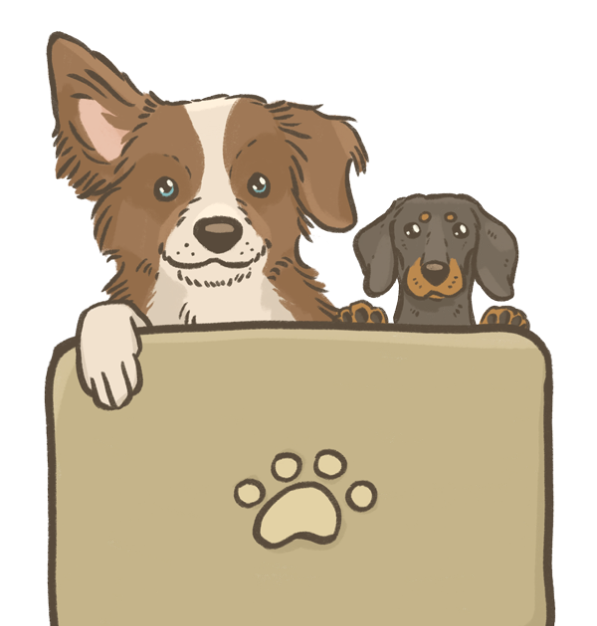Why is my dog constipated?

Constipation In Dogs
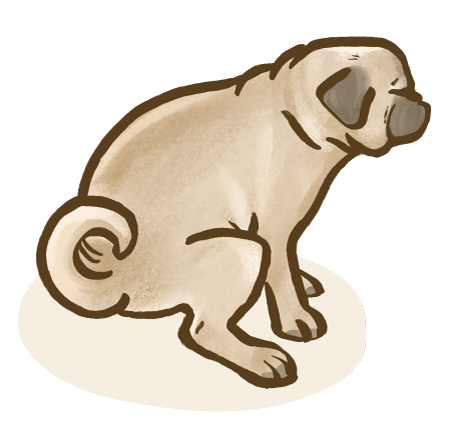
While no one enjoys dog poo, noticing it disappear from your dog’s daily activities can be cause for concern. Dogs and their digestion aren’t too different from us humans, meaning constipation is common and can be easily rectified. If your dog has been constipated for 1-2 days, a home remedy can typically help, if your dog has been constipated for 3 days or more or you are noticing reoccurring constipation, we would recommend having a vet check them out and chatting with a Canine Nutrionist about a change in diet (may we recommend raw feeding 😉).4
Symptoms of Constipation in Dogs:
Here are some of the most common symptoms to look out for if you suspect your dog is constipated (aside from noticing that they are not pooping):1
- Lack of appetite and energy
- Abdominal pain: You may notice a distended or swollen, hard stomach that is sensitive to touch and pressure
- Decreased or no bowel movements, when they do poo, it is hard and small, and you may see blood in the stool
- Signs of distress and discomfort, lashing out or timid behaviour, crying or yelping when trying to poo
- Scooting and squatting excessively, taking longer to poo
- Vomiting
How to treat dog constipation at home:
If you have noticed your dog has not pooped in the last day you can try giving them some home remedies.
Pumpkin, sweet potato, carrots, or fig is a great addition to their meal or on its own if they have lost their appetite. These are all naturally high in fibre and packed full of vitamins and nutrients, which alleviate constipation and will make them feel full. Pureeing these foods may make it more appealing to your dog and the moisture in a puree can also help loosen your dog’s stool.1
Otherwise, dietary oils such as flax, fish, coconut or hemp oil can also work to combat constipation.
Making sure they have plenty of water and are staying hydrated is incredibly important, as is continuing to exercise. Physical movement can trigger bowel movement, so take them out for a walk or get them running around the house.4
Reoccurring and long-lasting constipation, when to see a vet?
If you are noticing reoccurring constipation, or constipation that is not resolving in under 3 days, your pet may be struggling to digest their food or having internal and digestive issues. We would recommend consulting a vet to check their overall and organ health and looking at changing their diet.2
In a more serious case, your vet may prescribe dog laxatives so your dog’s intestines can absorb more water and their gastrointestinal system can feel some relief. They may also prescribe stool softeners to alleviate any pain your dog feels when trying to poo.
Probiotics after any medication also help to strengthen your pets stomach lining, as well as build up the bacteria they have lost from the medication.1,3
Constipation can worsen into obstipation, causing irreversible damage to the digestive system or can be caused by kidney disease, tumours, and hypothyroidism. Your vet may need to perform an enema or surgery if your pet’s constipation is causing more serious issues or is caused by a blockage.3
How to prevent constipation?
Diet
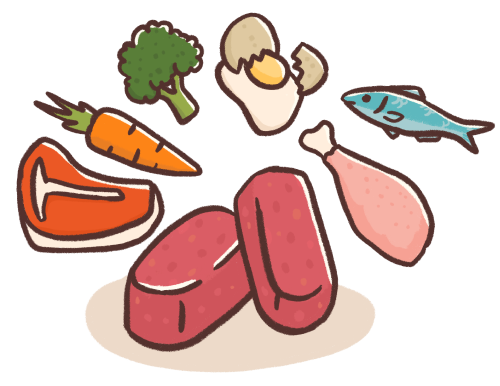
Switching to a raw diet can provide them with the extra hydration they need to pass their stools and support their digestive system. Raw diets are easy to process and support your dog’s digestive system, offering them all the nutrients they need. Our Big Dog Wellbeing and Sensitive Skin Diet contain higher levels of dietary fibre and are great options in encouraging healthy intestines and healthier stools. All our raw diets have high moisture content to combat dehydration. Transition them to raw food over a two-week period to avoid diarrhoea and constipation.2
Probiotics
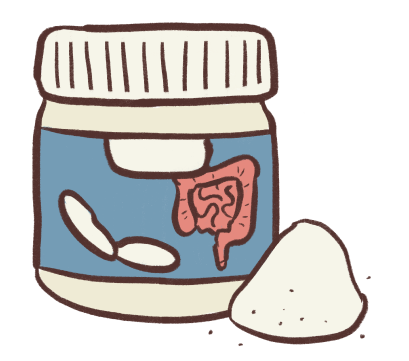
Introducing probiotics to your dog's diet can also alleviate reoccurring constipation. Our Big Dog Original probiotic and Soothe and Support probiotic are great options to assist in improving intestinal function and combat constipation, by introducing healthy gut bacteria which helps draw water into the intestines and assist in digesting food.
Grooming

Regularly grooming your dog to avoid excessive self-grooming is also important, a build-up of hair and fur in their digestive tract can create a block.4
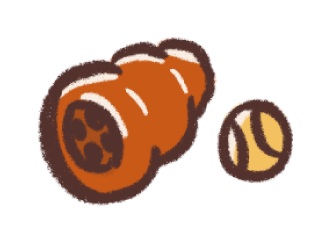
Safe toys
Make sure their toys and enrichment toys are durable, so they are not eating plastic or rubber that is breaking off.
Environmental
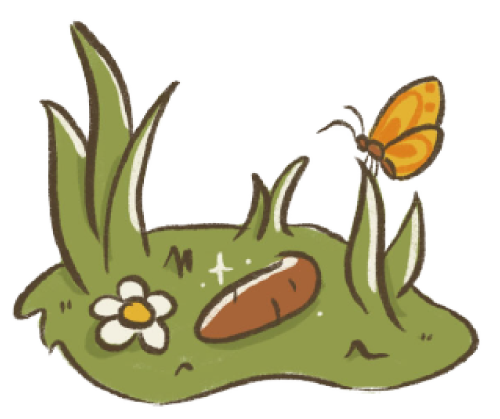
Make sure they are comfortable where they can poo, busy and loud environments can cause stress in your dog leading to constipation if they are not able to relieve themselves. If you have a more particular (or spoilt) dog who isn’t a fan of the great outdoors because it is raining or they have to walk on wet grass, placing an absorbent pad or mat inside can offer them comfort and a calm environment to poo in. Which hopefully will help them avoid having stress constipation!
We will leave you with this, what did the constipated hot dog say?
MUST TURD!
Sources:
- Gagne, M (2023). How To Manage Constipation With Natural Laxatives For Dogs. Retrieved 28 February 2024.
- Anjos, M (2023). Easy Constipation Relief for a Dog Eating a Raw Dog Food Diet. Retrieved 28 February 2024.
- Kollannur, J et al (2024). Introduction to Diseases, Diagnosis, and Management of Dogs and Cats: Developments in Microbiology. Retrieved 28 February 2024.
- Walsh, T (2023). Dog Constipation: Why Your Dog Can't Poop & How To Help. Retrieved 28 February 2024.
